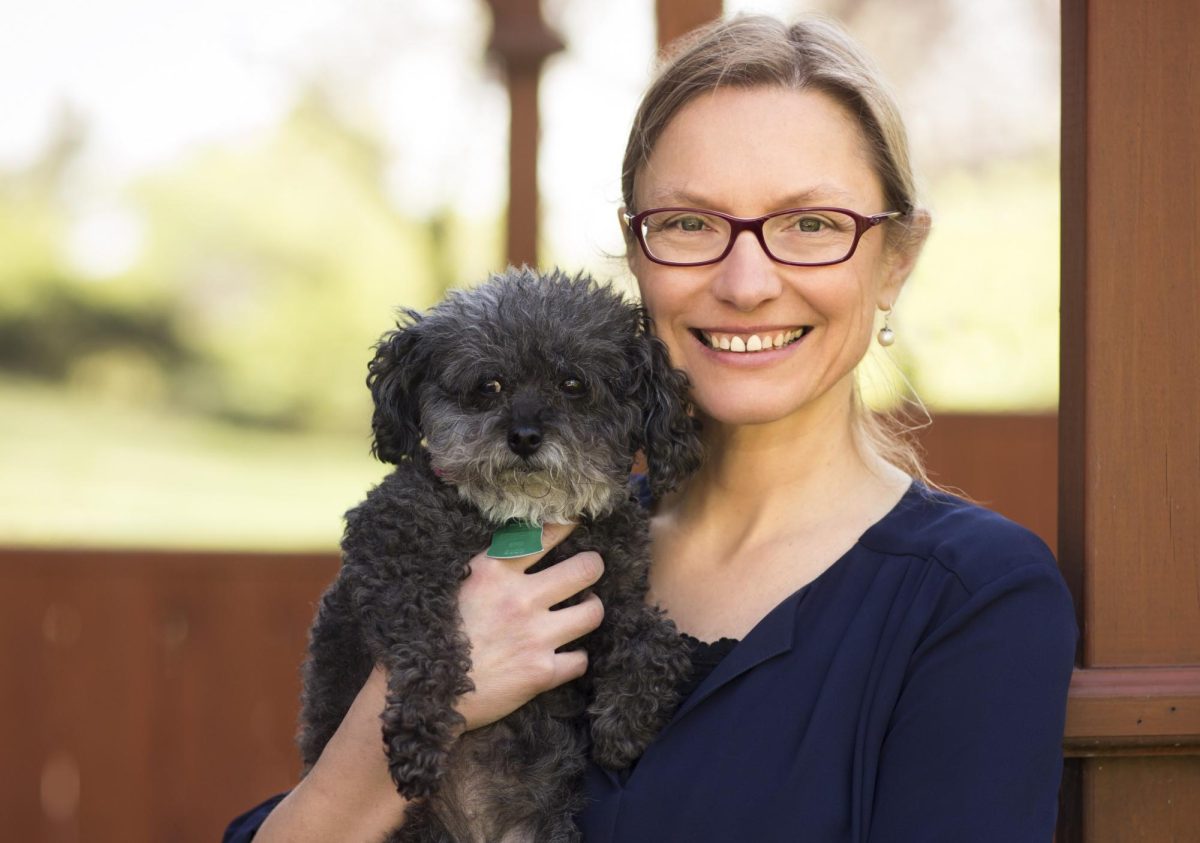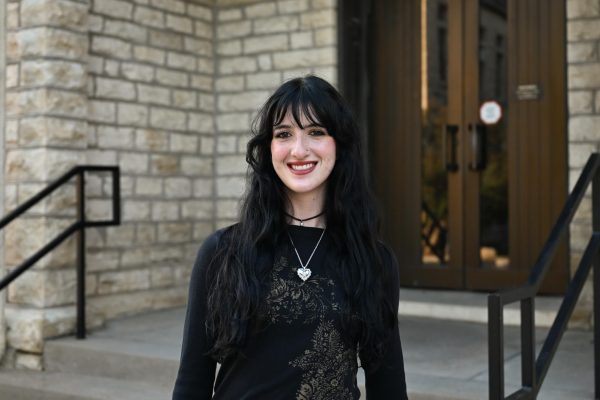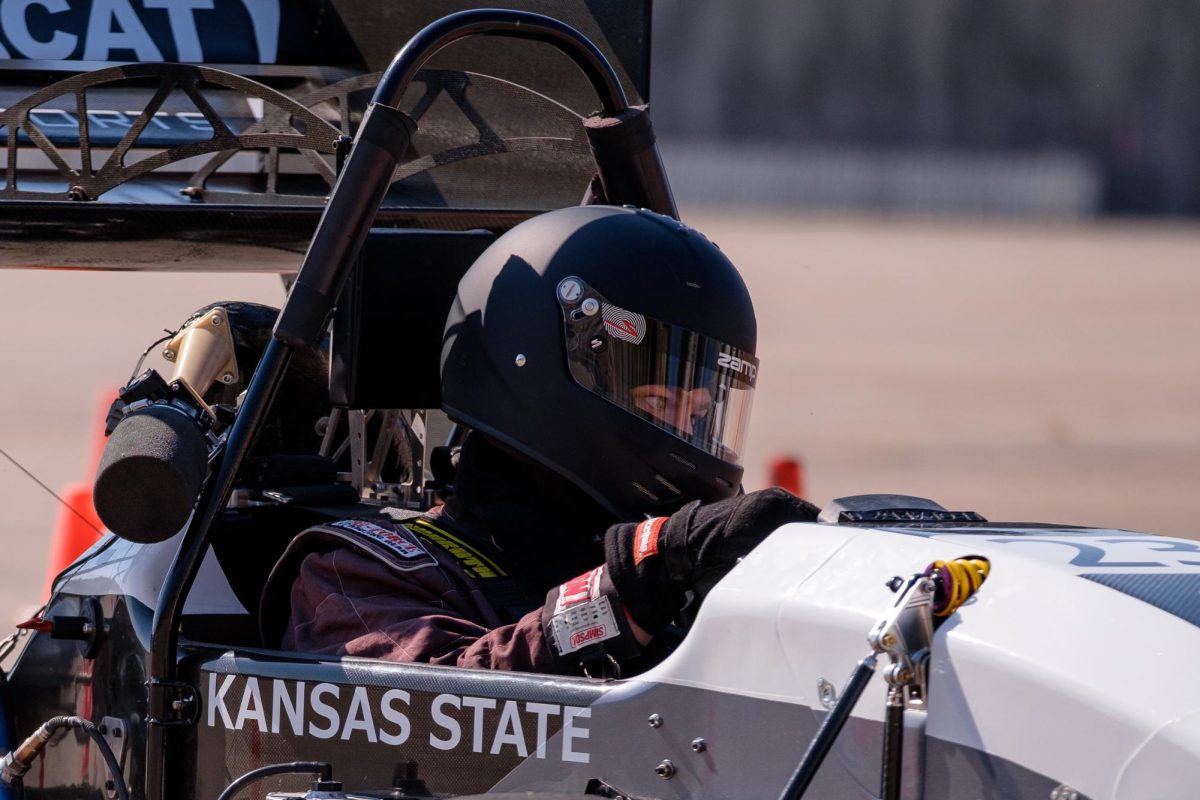Two Kansas State faculty members from the College of Veterinary Medicine received the Iman Outstanding Faculty Award in November, a $5,000 prize for excellence in teaching or research.
Derek Mosier, department head for diagnostic medicine and pathobiology in the College of Veterinary Medicine, said Ron and Rae Iman, in partnership with the K-State Alumni Association, hand out the award yearly to recognize faculty “that go above and beyond in their area of discipline.”
Lisa M. Pohlman, professor of clinical pathology, received the award for teaching, and Waithaka Mwangi, professor of diagnostic medicine and pathobiology, received the award for research.
“That’s one of my major passions, is teaching the vet students,” Pohlman said. “So … what clinical pathology is, basically it’s a lot of looking at bloodwork, urinalysis, you know, it’s the data.”
Pohlman said she realized she wanted to pursue education during her residency at Auburn University from 2004-2007.
“When I went into my residency, I really thought that I would just go into diagnostics,” Pohlman said. “… I think I realized then how much I enjoyed teaching and watching the metamorphosis of students as they come into the program and grow, and their vocabulary changes and they become doctors, and their confidence grows — just watching all that is really rewarding when you’ve been part of teaching it.”
Mosier nominated Pohlman for the Iman Award.
“She’s very student-centered,” Mosier said. “She wants to build a learning environment that helps them to do the best that they can. She spends whatever time is necessary to try to help them understand and, again, just creates a great learning environment. She’s demanding but fair, and she makes it clear what she expects, and students want to try to reach that because they respect her greatly, and her efforts to help them learn in clinical pathology.”
Pohlman said her love for animals also influences her teaching strategy.
“I am really wanting to make sure that we have great care for animals and part of that is teaching our veterinarians, our students. I’m also the president and medical director of the Riley County Humane Society. That’s not associated with K-State, but it’s all sort-of part-and-parcel of caring for animals.”
Mosier said Pohlman’s passion reflects in her students’ success.
“It makes it important,” Mosier said. “When a faculty member goes in and they’re excited about what they teach, I think that helps the students get excited. They realize that it’s an important topic, it’s worth knowing, and I think it’s a bit infectious. Her classrooms are upbeat, positive, very caring environments.”
Mosier also nominated Mwangi for the Iman award, who conducts research to find better ways to immunize livestock and humans.
“We focus on several main diseases of interest,” Mwangi said. “The primary one that is of interest to us is … a very big virus. If you take COVID, for example, and compare it to the virus we’re working on, which is called African Swine Fever, [it’s] about 10 times much bigger, 10 times, even, more complicated.”
Mwangi said African Swine Fever only affects pigs.
“There’s several strains, but the most lethal one kills pigs within about five to 12 days,” Mwangi said. “The clinical outcomes, to put it in a layman’s language, are similar to what Ebola causes in humans. … It’s a tick-transmitted virus that tends to be present in wild hogs, bush pigs, but it doesn’t kill all animals. What happens is when bush pigs, or wild hogs, comes in contact with a domestic pig, the virus can be transmitted by contact or even waste from an infected animal.”
Mwangi said the virus is endemic in Africa and continues to spread to other continents via human carriers. The main focus of his research is to develop a vaccine that will prevent an outbreak of African Swine Fever in the United States.
“If there is an outbreak in the United States, it will actually have a huge economic impact,” Mwangi said. “Number one, United States is the leading pork exporter. … Even a single incident would jeopardize that market at the global level. … The pork industry is also a huge customer of various products, including grains and supplements, so the jobs created within the pork industry would also be jeopardized.”
Mwangi said he must observe every element of the virus’ makeup during his research.
“The struggle here is that given the complexity of the virus, it’s not easy to make a vaccine because we don’t know even what it takes to really confirm effective protection. So that’s where we are at, looking at all the proteins, all the pieces in the virus. I’m asking the question: Which one of those could be protective?”
Mosier said Mwangi’s adaptability qualified him for the Iman Award.
“He’s very creative, innovative, kind of a visionary researcher,” Mosier said. “He anticipates problems and then uses the tools and skills that he has to try to address them.”
Mosier said Mwangi’s research has positive effects not only on pigs but also on the world as a whole.
“He works on domestic diseases, global transboundary disease, mainly production animals, but he’s working on projects for cancer in animals and things like that as well,” Mosier said. “So, he applies his skills across a wide variety of topics and is very dedicated to it. He runs high-quality [research], he’s very precise and just an excellent researcher.”




























































































































